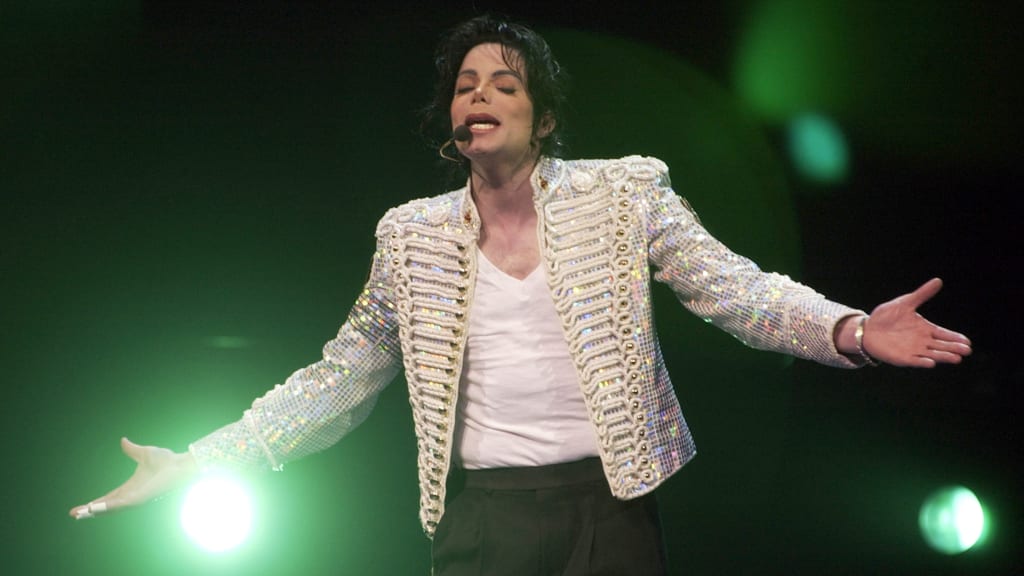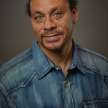
Neverland: MJ, Propofol and the absence of sleep
The creative brain never stops working; it is in a constant state of invention. One idea can trigger several other ideas, each one as captivating as the next, not unlike how the multiverse develops. To some this may appear a blessing, but to the blessed, it often becomes a turmoil of disorganized noise, a miasma of motifs. The constant din is often difficult to drown out or shut down using even the most dramatic of means. Ask any college student writing that all-important term paper. After a diet of caffeine and speed, winding down falls into the category of not an option, and sleep no longer contaminates the lowest level of Maslow's hierarchy of needs, its prominent position replaced by insomnia, hallucinations and paranoia.
For the artist, especially the famous artist, the blessing is a curse, exacerbated by the pitfalls and excesses of fame. The ideas are consuming, as is often a need to satisfy the fans. Celebrity and wealth offer an inappropriate level of access to substances both legal and illegal, as well as unscrupulous individuals blinded by stardom to supply those substances, and anything else the famous artist may desire. Consider the curious case of Michael Jackson: wunderkind, record breaker, household name, with a reputation for unusual behavior. Many argue that Michael was the greatest entertainer of his time, but if you consider the quality of the last decade of his life, an argument for most tragic entertainer of his time is plausible as well.
Does a creative brain want sleep? Possibly not, as sleep is the state upon which the brain processes the myriad experiences one encounters during the time awake. Creative people do that already through composition, making sleep less relevant. However, since composition is an unnatural way to process, it is less efficient than sleep. Therefore, after a while the brain becomes starved for sleep, which results in mental instability. In Michael Jackson's case, however, there are several additional factors that contribute to the questionable decision-making that led to his untimely death.
Michael didn't want to sleep - he wanted to stop the music for a while. Amidst the adoration of fans, the demands of his career, and the suffering caused by a troubled and abusive upbringing, the pain management as a result of his burn accident in 1984 and the subsequent plastic surgery, the mental anguish caused by the allegations of child abuse and the criminal trial that followed, and the psychological instability created in his mind as a result of the pressure of being labeled the "greatest entertainer of all time," Michael Jackson turned to drugs, and like many of his musical comrades, succumbed to its entropic power.
Michael Jackson's autopsy report is a curious document that offers great insight into the circumstances surrounding his last few hours of life. No matter how much abuse we subject our bodies to, it is remarkable exactly how resilient we are. To his credit, Michael's heart was healthy; he was not in risk of a heart attack. Unfortunately, Michael wanted sleep... or did he? True sleep, in the sense that most folks appreciate, was not Michael's objective. He wanted a state of rest that involved as little brain activity as possible, hence, propofol. "[Propofol] is very fast-acting and works by slowing brain wave activities, says John F. Dombrowski, MD, an anesthesiologist/pain specialist at the Washington Pain Center in Washington, D.C. If that is the case, Michael Jackson was not looking for R.E.M; he was looking for L.E.M: Less Eye Movement. The autopsy reports that Michael had propofol in his system at the time of his death; a substance normally administered in hospitals by anesthesiologists, not by cardiologists in private residences.
Let's examine Michael Jackson's particular diet of medicines in their entirety, so we can have a better understanding of why the King of Pop shuffled this mortal coil.
***
According to his autopsy report, Jackson had nine different substances in his system, and almost twenty different pharmaceuticals present in the bedroom where he stopped breathing. Most troubling was propofol, an anesthetic, used during medical procedures (like surgery) as the industry standard since 1989. Propofol is not the type of drug you find outside of a hospital, much less in a person's body. Because it possesses euphoric side affects, Propofol is known to be addictive, usually among members of the anesthesiology community seeking a means of rest between shifts. Michael's need for rest led him to this extreme use of this drug. A drug that he needed a physician's assistance to administer, Michael probably knew of this drug for years, possibly since its inception.
Other drugs either readily available to Jackson or in his system at the time of his death include:
Clonazepam - used to control seizures or sometimes used to relieve panic attacks.
Diazepam, or Valium - for anxiety, and sometimes used in the treatment of alcohol withdrawal.
Lorazepam - also treats anxiety.
Temezepam - used to treat insomnia, but on a short-term basis; it is also used for anxiety.
Tizandine - normally used by sufferers of multiple sclerosis, is a muscle relaxant.
Trazadone - increases the levels of serotonin in the brain, and used to treat depression. It is sometime used as a sleeping aid. In some cases, it causes confusion, nightmares and memory loss.
Flumazenil - reverses the effects of sedatives. An article written an international journal of anesthesiology in 1995 suggested that Flumazenil is not effective against propofol.
Midazolam - a child's sedative used before medical procedures and often in conjunction with anesthesia.
Flomax treats the symptoms of an enlarged prostate.
Most of these drugs have the additional side effects of dizziness, drowsiness and/or lightheadedness. Many of these drugs cause constipation, diarrhea, stomach pain, nausea and vomiting.
Benoquin is used for the treatment of vitiligo, a skin disorder. It causes depigmentation or lightening of the skin. Hydroquinone decreases the formation of melanin, which gives skin its brown color. Both of these medications were found in Michael Jackson's bedroom.
What does the combination of all these different drugs tell us about Michael Jackson? First, the obvious: Michael was under some serious stress. Whether it was the rehearsals for the This is It tour, being a single parent or money problems, it is clear that Jackson was not doing well with any of it. Who needs three anti-anxiety medications, two sleeping aids and a muscle relaxant? Who has insomnia so severe they need two hospital grade anesthesia medications?
What is strange is the lack of other drugs associated with addiction of this kind: no pain killers, no opiates, no depressants, no stimulants. Michael didn't smoke, and if he drank, it appears he didn't do so heavily. In his autopsy report, most of his major organs, except his prostate, seemed healthy and normal. Evidence of zanaflex was found, but it is the same as tinzadine. Prednisone may have been for the limited arthritis Jackson may have suffered in his knees and fingers, but there were no pills left in the bottle and none in Jackson's system when he died. Amoxicillin and azithromycin are standard antibiotics, though the former is often used for STDs and the latter for ear, nose, throat and skin infections. But none of those drugs are addictive. In fact, most folks don't want to take them in the first place.
Michael Jackson was known for his practical jokes and for deliberately spreading rumors, such as sleeping in a hyperbaric chamber and purchasing the Elephant Man's bones. Claims that he was addicted to Demerol seems unsubstantiated by the evidence; not when there was so much propofol in his system at his death that it was present in his bloodstream, his liver and in his urine. But the last laugh was on Jackson, having trusted his life in the hands of a doctor who, according to the courts, was unable to fulfill his wish of a good night sleep.
Of course, most addicts are seeking release of a temporary sort, not the final release. Michael wanted rest. His objective was to be in a state where he could give the performance of his career. The unrepeatable success of Thriller left Jackson in a untenable position: how do I top the greatest selling album of all time? Jackson's previous accomplishments made it impossible for him to do anything even approaching a mundane standard again. He could not age gracefully, he had to go bigger. Death wasn't his aim, but it was something he couldn't top.
Antonio Jacobs
November 2011
Bibliography
1) Propofol - Wikipedia, the free encyclopedia. <http://en.wikipedia.org/wiki/Propofol>
2) "What is Propofol -- and How Could It Have Killed Michael Jackson?" by Katherine Harmon. October 3, 2011. Scientific American.
3) "BBC ON THIS DAY | January 27, 1984: Michael Jackson burned in Pepsi ad. <http://news.bbc.co.uk/onthisday/hi/dates/stories/january/27/newsid_4046000/4046605.stm>
4) "Michael Jackson's Death: How Dangerous is Propofol?" by Bryan Alexander. Time Entertainment. August 25, 2009. <http://www.time.com/time/arts/article/0,8599,1918363,00.html>
5) "Valley Dr. Refused to Give Powerful Drug to Michael Jackson" by Shannon Handy. ABC30, KFSN-TV Fresno, Ca. <http://abclocal.go.com/kfsn/story?section=news/local&id=6930437>
About the Creator
Antonio Jacobs
A lifelong New Yorker, Antonio writes fiction and non-fiction and is a musicologist who believes that The Wizard of Oz is the template for all films ever made.
Enjoyed the story? Support the Creator.
Subscribe for free to receive all their stories in your feed. You could also pledge your support or give them a one-off tip, letting them know you appreciate their work.






Comments
There are no comments for this story
Be the first to respond and start the conversation.